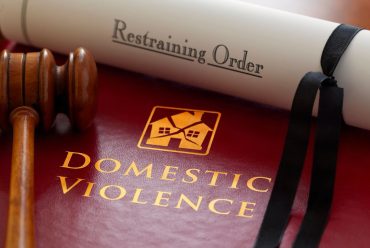Should You Choose Legal Separation or Divorce?
When a marriage falls apart, couples often find themselves at a crossroads, contemplating whether to opt for legal separation or divorce. The choice isn’t always straightforward, and the implications can be far-reaching if you have shared assets, kids, or own businesses together.
Divorce offers a clean break, but it’s not the only option in Ontario. Legal separation allows you to live apart while remaining married, with a formal agreement that outlines your responsibilities. For some, this path offers more time, flexibility, and peace of mind without finalizing the end of the relationship.
What is Legal Separation?
Legal separation in Ontario is a formal process where a married couple decides to live apart while remaining legally married. Unlike divorce, legal separation doesn’t end the marriage. Instead, it provides a framework for the division of assets, child custody, and spousal support. A separation agreement, often drafted with the help of a family lawyer, outlines these terms.
Legal Implications of Legal Separation
- Legal Status: Still married but living separately
- Child Custody: Determined through the separation agreement
- Financial Obligations: Spousal and child support can be arranged
Failure to adhere to these financial commitments can result in legal consequences, potentially affecting your credit score and even leading to court action.
What is Divorce?
Divorce, on the other hand, is the legal termination of a marriage. It’s a more permanent solution that allows both parties to remarry. A divorce order from the court is required to finalize the process, and it involves a more complex legal procedure compared to legal separation.
Legal Implications of Divorce
- Legal Status: In a divorce, the marriage is legally terminated, allowing both individuals to regain their status as single persons, free to remarry or enter into other legal partnerships.
- Child Custody: Custody of children is either decided by the court or through mutual agreement between the parties. This decision is legally binding and can involve joint or sole custody, depending on the circumstances and the court’s judgment on what is in the best interest of the child.
- Financial Obligations: Divorce comes with a range of financial implications, including spousal and child support. Additionally, assets acquired during the marriage are usually divided between the parties, either based on mutual agreement or court decision. This division can include everything from real estate to retirement accounts and debts.

Main Differences between Legal Separation and Divorce in Ontario
Understanding the nuances can help you make a more informed choice. Here are some key differences:
- Legal Status: You remain married under legal separation, whereas divorce ends the marriage.
- Financial Obligations: Legal separation allows for financial support plans, while divorce often involves a court-ordered division of assets.
- Child Custody and Support: Both processes require a clear child care plan, but divorce may involve more rigid court orders.
- Flexibility: Legal separation offers a trial period for couples, divorce is final.
Legal Process for Legal Separation and Divorce in Ontario
Both legal separation and divorce have their own set of legal procedures.
Legal Separation Process
- Consult a family lawyer
- Draft a separation agreement
- Notarize and implement the agreement
Divorce Process
- File a divorce application
- Serve divorce papers to the spouse
- Attend court hearings
- Obtain a divorce order
Considerations for Choosing between Legal Separation and Divorce in Ontario
When deciding between the two, consider factors like:
- Personal Circumstances: Are you looking for a trial separation or a permanent split?
- Financial Implications: Assess the impact on joint assets and debts.
- Future Plans: Legal separation may offer more financial flexibility, but divorce provides a clean break, which might be beneficial for long-term financial planning.
- Impact on Children: Legal separation might offer a less disruptive change, but the permanence of divorce might provide a more stable environment in the long run.
Why do some couples choose legal separation over divorce?
Legal separation offers couples the ability to live apart without officially ending their marriage. For many, this choice comes down to personal values, financial strategy, or uncertainty about the future. Some couples remain legally married to maintain shared health benefits, qualify for pension entitlements, or respect religious or cultural beliefs that discourage divorce.
Others see legal separation as a way to create space to reflect, re-organize finances, and co-parent more peacefully, without the pressure of finality. Unlike divorce, a separation agreement can be customized to include trial periods, revisit support terms, and adjust parenting schedules as life changes.
For couples with children, separation feels less disruptive than a divorce. It creates structure without forcing immediate legal closure. In some cases, spouses use this time to work toward reconciliation while still protecting their legal and financial interests.
Can couples stay legally separated indefinitely in Ontario?
Yes, you can remain legally separated in Ontario for as long as both spouses agree. Since there isn’t a legal deadline, it allows couples the flexibility to take time with their decision. However, legal separation comes with responsibility.
Couples must sign a separation agreement to protect their personal interests. Staying separated indefinitely also has legal implications. You remain each other’s next of kin, cannot remarry, and may still share tax, insurance, or estate responsibilities unless explicitly addressed in your agreement.
If one spouse later wants to file for divorce, they may do so after living apart for at least one year, which meets the common ground for “no-fault” divorce in Canada.
Seeking Legal Advice
Before taking any steps, it’s essential to seek advice from a certified family lawyer in Ontario. They can offer personalized guidance that takes into account all the legal and financial nuances of your situation.
At Noori Law, our seasoned family lawyers stand ready to support and counsel you through this challenging life change. Book a consultation today.








